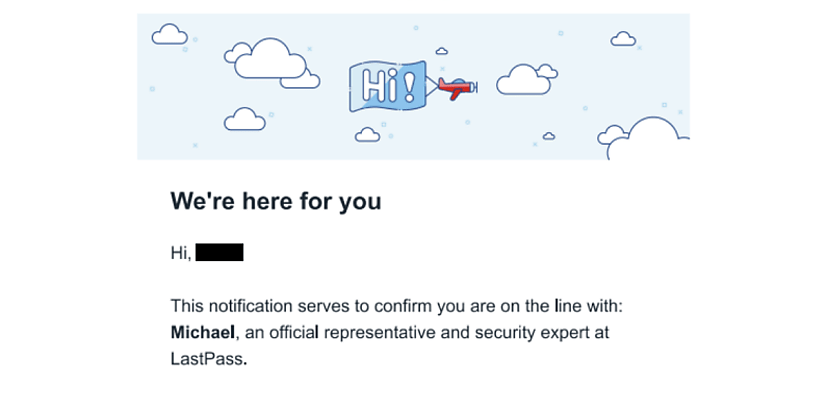Share this article on:
Powered by MOMENTUMMEDIA
Breaking news and updates daily.
LastPass has issued a warning to its customers regarding a phishing campaign in which cyber criminals disguise themselves as LastPass staff to access customer password vaults.

For context, LastPass is the world’s most used password manager, allowing users to store their passwords in one secure “vault” and use a master password to access everything. This allows them to use more advanced passwords or passphrases without the risk of forgetting them while also making logins easy.
The company announced that it had spotted the CryptoChameleon phishing kit being used by threat actors to gain access to LastPass customer vaults.
The CryptoChameleon kit works by allowing threat actors to create fake single-sign-on pages imitating other sites. Those who use the fake sites to log in hand their credentials over to the threat actors.
LastPass was notified by data protection specialists Lookout that it had been added to the CryptoChameleon phishing kit and that threat actors had been observed using it to trick victims into handing over their details.
According to LastPass, these phishing attacks are being engaged in a number of ways.
“Victims are directed to fake websites via phishing emails, SMS messages, or even direct phone calls (vishing),” said LastPass on its blog.
The tactics observed by LastPass generally involve:
“We have worked with our vendor partners to take down the phishing site, and we are informing our customers so they can be on the lookout for future iterations of this campaign that may use the same tactics,” LastPass said.

Be the first to hear the latest developments in the cyber industry.